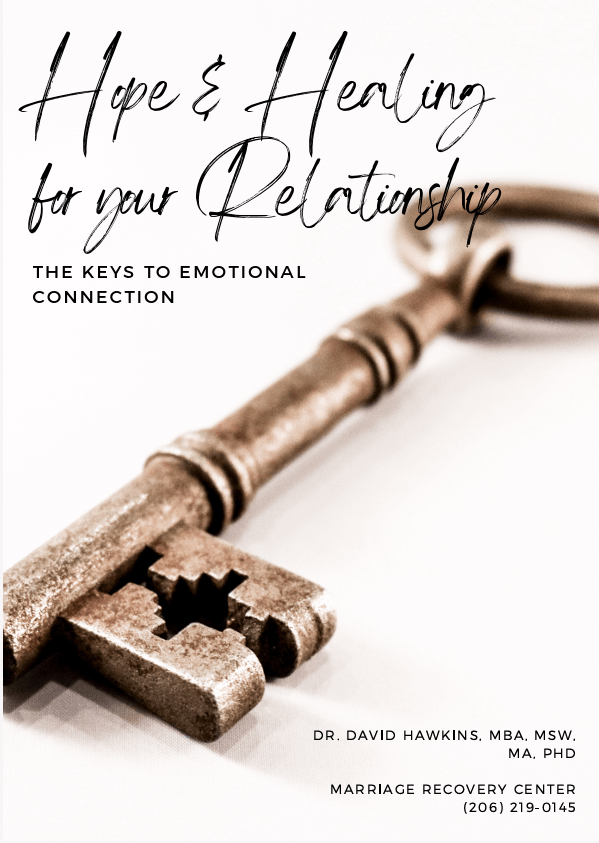Mental health is no longer a topic that needs to be brushed under the rug. Today, more people are opening up about their struggles, from anxiety to depression, to trauma and relationship issues. These challenges are universal, impacting one in four people worldwide. Yet, despite its prevalence, many individuals still face a stigma when it comes to seeking help. In this article, we will discuss why mental health should be treated with the same importance as physical health and how taking care of your emotional well-being can positively affect all aspects of your life.
The Importance of Normalizing Mental Health Conversations
In the past, mental health was often a taboo topic—something that people were reluctant to discuss openly. Thankfully, times are changing. As more people come forward with their own stories of mental health struggles, the conversation is slowly shifting toward acceptance and understanding. But we still have a long way to go.
Dr. David Hawkins emphasizes that mental health is a universal issue. “One in four people have been diagnosed with a mental health disorder,” he states. “Far more than that are struggling with mental health issues, and they’re not getting the help they need.”
The reason why so many people are hesitant to seek help is due to the stigma that surrounds mental health. This stigma stems from the false notion that reaching out for help means weakness or failure. However, nothing could be further from the truth. Mental health struggles are common, and they are part of being human. Just like you would seek help if you had a physical illness, it’s equally important to seek help when you’re struggling emotionally.
Understanding Mental Health Struggles
Mental health challenges come in many forms, and no two people experience them in the same way. Anxiety, depression, trauma, and relationship issues are just a few examples of the emotional challenges that people face every day.
While some individuals may experience symptoms of these challenges in more severe forms, others may quietly carry the burden without ever speaking about it. This silent suffering can be incredibly isolating. But it’s crucial to recognize that struggling with your mental health doesn’t make you any less worthy or capable. It’s simply part of being human.
Dr. Hawkins points out that emotional distress, including issues like depression and anxiety, is incredibly common. “We all, at one time or another, struggle with anxiety, depression, and so on,” he says. These issues can arise from various factors such as life stress, trauma, genetic predisposition, or environmental influences. The key is to identify when these feelings are becoming overwhelming and to seek the support you deserve.
The Benefits of Prioritizing Mental Health
Just as nutrition and sleep are fundamental to physical health, taking care of your mental health is just as essential. Yet, for many people, mental well-being often takes a backseat to other responsibilities and demands. However, when you neglect your emotional well-being, the effects can be far-reaching.
Improved Emotional Resilience
When you prioritize your mental health, you are better equipped to handle life’s challenges. Whether it’s stress at work, family dynamics, or unexpected setbacks, emotional resilience allows you to navigate difficulties with a clearer mind and a more grounded perspective.
Taking care of your mental health also fosters self-awareness, which helps you understand your emotions, triggers, and responses. This understanding leads to healthier coping mechanisms and better decision-making, especially in high-pressure situations.
Stronger Relationships
One of the most profound benefits of prioritizing mental health is the positive impact it has on relationships. When you feel emotionally balanced, you are better able to communicate effectively, show empathy, and provide support to loved ones. In contrast, when your mental health is suffering, relationships can become strained, leading to misunderstandings and unnecessary conflict.
As Dr. Hawkins says, “When you love yourself well, then you can love others well too.” Practicing self-care, including mental health care, allows you to give from a place of emotional abundance rather than depletion.
Enhanced Physical Health
Mental health and physical health are intricately connected. Chronic stress, anxiety, and depression can manifest in physical symptoms, including headaches, fatigue, and digestive issues. On the other hand, when you take steps to manage your mental health, such as through therapy, mindfulness, or relaxation techniques, you can also experience physical benefits.
When you take care of your emotional well-being, you are less likely to engage in unhealthy coping mechanisms such as overeating, smoking, or drinking excessively. Instead, you’ll be more inclined to adopt healthy habits that support both your mental and physical health.
Boosted Productivity and Focus
When your mental health is neglected, it becomes harder to focus on tasks, whether at work or at home. Anxiety and depression can cloud your thinking, making it difficult to concentrate, be productive, or even find motivation. By taking proactive steps to improve your mental health, you can regain mental clarity, boost creativity, and enhance your overall productivity.
The Importance of Seeking Help
It’s essential to recognize when you need support. As Dr. Hawkins points out, “When we get to the point when we’re overwhelmed, when we’re stressed out, we need to reach out for help.”
Unfortunately, many people wait until they are in crisis mode before seeking assistance. This delay in getting help can make emotional struggles harder to manage and can even lead to long-term consequences. It’s crucial to recognize that seeking help is not a sign of weakness—it’s a sign of strength and self-awareness.
Therapy and Counseling
Therapy is one of the most effective ways to address mental health challenges. A licensed therapist or counselor can help you explore the root causes of your emotional struggles, develop healthy coping strategies, and provide a safe space for you to express your thoughts and feelings. Therapy isn’t just for people with severe mental health issues; it can be incredibly helpful for anyone dealing with stress, relationship problems, or simply looking for personal growth.
Support Groups
Support groups are another valuable resource for those struggling with mental health issues. They provide an opportunity to connect with others who are going through similar experiences, reducing feelings of isolation. Whether it’s a group for anxiety, depression, or a specific life challenge, sharing experiences with others can be incredibly healing.
Self-Care Practices
In addition to professional help, self-care is a critical component of mental health. This includes practices like mindfulness, meditation, exercise, and sleep hygiene. These habits can help reduce stress, improve emotional regulation, and increase overall well-being.
Breaking the Stigma
As we continue to talk about mental health, it’s crucial to challenge the stigma that still surrounds it. Seeking help is not a sign of failure—it’s a sign of strength. By breaking down these barriers and normalizing mental health care, we create a world where everyone feels comfortable prioritizing their emotional well-being without shame or guilt.
Dr. Hawkins urges everyone to take a step back and evaluate their emotional state. “How am I doing emotionally? Do I have any symptoms of depression, anxiety, or trauma that have not been dealt with?” he asks. Recognizing these signs is the first step toward healing and growth.
Conclusion
Mental health is just as important as physical health, and it deserves our full attention and care every day. From managing stress to seeking professional help when needed, prioritizing your mental well-being has the power to transform your life. Remember, you are not alone, and help is available. By breaking the stigma and embracing self-care, you not only improve your own life but also the lives of those around you.
It’s time to make mental health a top priority—not just when times are tough, but every single day. Your emotional well-being deserves it.
To learn how we can help, reach out to us at (206) 219-0145 or info@marriagerecoverycenter.com to speak with a Client Care Specialist
Also read: Should You Tell a Narcissist That They Are a Narcissist?
About Dr. Hawkins:
The internet is inundated with hyperbole and misinformation about narcissism, leaving many people confused and hopeless. Get the facts on narcissism and emotional abuse from someone who has been researching, writing about and treating narcissism and emotional abuse for over a decade.
Dr. Hawkins is a best-selling author and clinical psychologist with over three decades of experience helping people break unhealthy patterns and build healthier relationships.
He is the founder and director of the Marriage Recovery Center and the Emotional Abuse Institute which offers education, training and counseling for people who want to break free of, and heal from, emotional abuse. Whether the perpetrator of the abuse is your spouse, partner, parent, boss, friend or family member, we offer practical advice for anyone trapped in a toxic, destructive relationship.
In addition to narcissism & emotional abuse, you’ll learn about the lesser known forms of abuse, including covert abuse, reactive abuse, spiritual abuse, secondary abuse, relationship trauma and much more.








